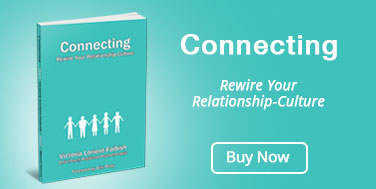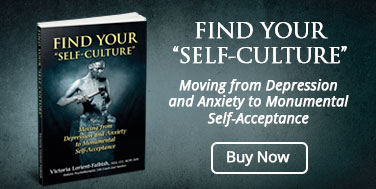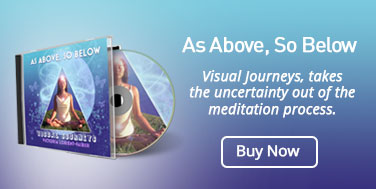Transcribed from my video at www.youtube.com/askvictoria.
Ask Victoria: Get a note pad because this one is chock a block full of info!! So many have no idea as to what kind of boundaries they are using. This longer video has many examples… So sit back and take notes..
Tags: boundaries relationships empowerment friendships marriage self awareness
Today’s topic is boundaries again, and examples. I got a lot of email from people on my last video, from people wanting more detail, information and boundary examples. How do you know you’re in a healthy boundary or an unhealthy boundary? I’ve put a list together, and I’m going to go through it, and I encourage questions always.
(0:42) You know you’re in an unhealthy boundary when you meet someone new, and you begin to tell all, immediately revealing every little intimate detail about yourself. Believe it or now, that is extremely unhealthy. What is a healthy boundary when meeting new people, is step-by-step, getting to know the person, checking whether there’s compatibility and a sense of safety, beginning to build trust, then you continue to reveal a little more of yourself. But don’t tell all on first meetings. That displays a tremendous amount of deep inner insecurity. The message you’re sending out is, “I don’t have any boundaries, so I’m giving everything.”
(1:38) When you are in a relationship, and you find out that you like this person, but you begin to fall in love with this person, just because they reach out towards you. No, no, no, don’t do that! Check for compatibility. Wait. It’s a step-by-step process. Don’t fall in love just because someone reached out. You are valuable; you are worth it. You should be waiting for the right person to fall in love with. Falling in love means that you are giving part of yourself to this person, and you should not give part of yourself to someone unless you have decided, over time, that you have a sense of sureness. What I’m saying is, take your time! That is a healthy boundary. Know your healthy boundary, and take your time.
(2:38) Touching someone without asking permission: do not touch anyone unless you ask them. It is an unhealthy boundary to just reach out and touch, and that goes for men and women. Another example of an unhealthy boundary is being sexual for your partner and not yourself. Be sexual only for yourself; take responsibility for your sexual pleasure, and check whether you want to say yes or no. Say yes or no only when they’re authentic. Say yes when you authentically mean yes; say no when you authentically mean no. That is a healthy boundary.
(3:17) Maintaining personal values despite what other people want; that is a healthy boundary. Noticing when someone has invaded your personal space, and letting them know—healthy boundary. Saying no to gifts, touch, food that you don’t want—don’t feel obligated out of guilt, niceness, to say yes to things, because that will build resentment, and that will also indicate to the other person that you are not being authentic with them, and do not have clear boundaries about your yeses and nos. A really good one here of a negative, unhealthy boundary: allowing someone to take as much as they can from you, or giving as much as you can, just for the sake of giving. I see a lot of people in my office who give, give, give, in the hopes that someone will like them, someone will love them. When you question them, most people would love to say no, would love to be able not to give, give, give. What I say to that is, allow yourself to feel a sense of security within yourself. You don’t need to give in order to be liked. If someone likes you, they’re going to like you whether you give to them or not. I see this extremely commonly. It’s very important not to allow anyone to take advantage of your generosity, and for you not to take advantage of theirs.
(4:52) Something else that I see very much as an unhealthy boundary is believing that others can anticipate your needs, expecting others to fill your needs automatically, believing that your friends and partners are mind-readers. These are such unhealthy boundaries. You need to know that it does not foster good relationships. All it does is indicate that you are going to manipulate from someone. If you are withdrawing from others without letting them know, or getting disappointed and angry because they did not anticipate your needs, basically you’re manipulating them. Be honest, be authentic, tell them what you need, tell them what you want! Don’t withdraw without telling them; tell them you need to take space. That is your job, if you are the space-taker, you need to tell them, you want space, and tell them you will be coming back to discuss the issue that made you want to take space in the first place. It’s very important that you not silent-treat people just because you’re angry at them. Communicate. That is a healthy boundary.
(6:00) You get to communicate your wants and needs; that is your right as a human being. What is also true, when you communicate your wants and needs, they may not actually be attended to. Someone might say no. That is their right. When you make a request, there’s a 50/50 chance that you’ll get a yes, and a 50/50 chance that you’ll get a no. Expect either one to come at you. Don’t be angry when one is a no, when you’re expecting a yes. You’re entering into a manipulative situation with someone.
(6:40) A big unhealthy boundary is walking around on eggshells. I see this a lot, in people who are unfortunately involved in addictive or alcoholic relationships, or with angry, volatile people. Essentially, if you find yourself walking around on eggshells because you’re afraid you will elicit anger or some poor behaviour from that person, you need to check yourself and probably get some help, probably get out of that relationship, because it sounds like you’re in a relationship full of unhealthy boundaries. Watch out if you are in a relationship in which you are walking on eggshells. You also need to become your own parent. It is very healthy, a healthy boundary, to parent yourself in a gentle and kind way. Talk to yourself nicely, as if you were talking to your plants. Be kind and generous with yourself, because you will be solidifying your core. When you solidify your core, you are more apt to have healthy boundaries with other people in your life. In order to have longevity in a healthy relationship, you need to be solid within your core. I encourage you to do a meditation in which you imagine yourself as the trunk of an oak tree: solid. And that your legs are roots growing into the earth, and finding an anchor in the middle of the earth. Wrap those roots around the anchor, and pull, and know that you are solidly within yourself. From that perspective, enter a relationship. Remember, move step by step into intimacy. Don’t give it all away at first meeting, OK?
Victoria Lorient-Faibish MEd, CCC, RPP, RPE
Holistic Psychotherapist
Masters in Educational Psychology
Canadian Certified Counsellor
Registered Polarity Practitioner
Registered Polarity Educator
Reiki Master
New Decision Therapy








